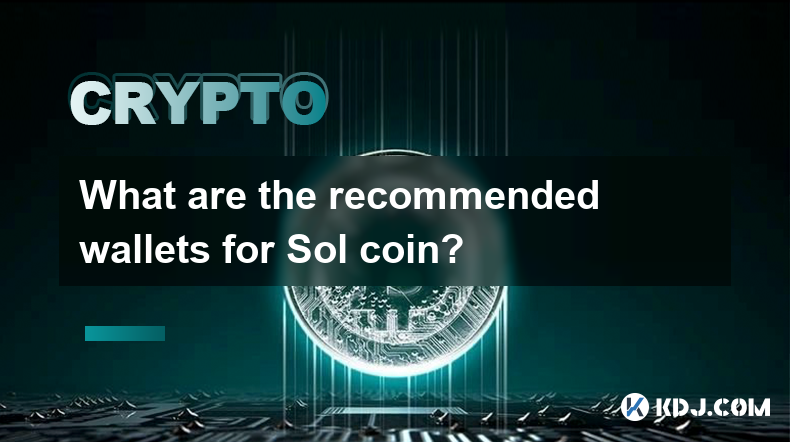-
 Bitcoin
Bitcoin $97,219.4672
1.63% -
 Ethereum
Ethereum $1,820.8950
1.13% -
 Tether USDt
Tether USDt $1.0001
0.02% -
 XRP
XRP $2.1327
-0.43% -
 BNB
BNB $602.3281
0.03% -
 Solana
Solana $147.7911
1.09% -
 USDC
USDC $0.9999
-0.01% -
 Dogecoin
Dogecoin $0.1725
1.12% -
 Cardano
Cardano $0.6706
0.13% -
 TRON
TRON $0.2489
1.41% -
 Sui
Sui $3.3512
1.53% -
 Chainlink
Chainlink $13.8526
1.44% -
 Avalanche
Avalanche $19.6299
-1.30% -
 UNUS SED LEO
UNUS SED LEO $8.7562
0.40% -
 Stellar
Stellar $0.2611
-0.23% -
 Shiba Inu
Shiba Inu $0.0...01279
1.26% -
 Toncoin
Toncoin $3.0266
0.40% -
 Hedera
Hedera $0.1765
0.37% -
 Bitcoin Cash
Bitcoin Cash $369.4993
2.08% -
 Hyperliquid
Hyperliquid $21.1995
1.68% -
 Litecoin
Litecoin $89.5955
4.54% -
 Polkadot
Polkadot $3.9568
0.63% -
 Dai
Dai $1.0002
0.01% -
 Monero
Monero $282.5473
-1.06% -
 Bitget Token
Bitget Token $4.2199
-1.10% -
 Ethena USDe
Ethena USDe $1.0007
0.03% -
 Pi
Pi $0.5835
0.91% -
 Pepe
Pepe $0.0...08266
4.18% -
 Bittensor
Bittensor $367.8815
0.84% -
 Uniswap
Uniswap $4.8814
-0.32%
What are the recommended wallets for Sol coin?
Solana wallet selection depends on your tech skills and security needs; hardware wallets (Ledger, Trezor) offer superior security, while software wallets (Sollet, Phantom) prioritize convenience but demand careful security practices.
Mar 06, 2025 at 09:18 pm

Key Points:
- Solana's ecosystem offers a variety of wallets, each with strengths and weaknesses.
- Choosing the right wallet depends on your technical expertise and security needs.
- Hardware wallets offer the highest security, while software wallets provide greater convenience.
- Consider factors like ease of use, supported features, and security when selecting a wallet.
- Always prioritize security best practices regardless of your chosen wallet.
What are the recommended wallets for Sol coin?
Solana, a high-performance blockchain, has gained significant traction, leading to a diverse range of wallets catering to various user needs. Choosing the right wallet is crucial for securing your SOL holdings. This article explores several recommended options, highlighting their features and suitability for different users.
Hardware Wallets:
Hardware wallets are considered the gold standard for cryptocurrency security. They store your private keys offline, making them virtually immune to hacking attempts. Leading options include:
- Ledger Nano S Plus/X: These are popular hardware wallets known for their robust security and support for a wide range of cryptocurrencies, including SOL. They require a small initial investment but offer peace of mind. The setup process might seem slightly complex for beginners.
- Trezor Model One/T: Similar to Ledger devices, Trezor wallets are reputable hardware wallets offering high-security features and SOL support. They boast user-friendly interfaces and strong security protocols. However, they might be slightly more expensive than some software options.
Choosing a hardware wallet requires careful consideration of its features and compatibility with Solana.
Software Wallets:
Software wallets are more convenient than hardware wallets but come with increased security risks. They store your private keys on your device, making them vulnerable to malware and phishing attacks. Several reputable options exist:
- Sollet: This is an official Solana wallet, directly integrated into the Solana ecosystem. It’s a user-friendly option, ideal for beginners. However, as a software wallet, it is susceptible to software vulnerabilities and requires careful security practices.
- Phantom: Another popular choice, Phantom offers a sleek interface and supports various Solana-based decentralized applications (dApps). It's known for its ease of use and intuitive design. Like all software wallets, it requires careful attention to security measures.
- Exodus: This multi-currency wallet supports SOL and offers a visually appealing interface. It is a desktop and mobile wallet with good user reviews for ease of use. However, remember that as a software wallet, it’s essential to maintain strong security practices.
- Math Wallet: A multi-chain wallet supporting Solana, Math Wallet offers a desktop and mobile option. It prioritizes security features such as hardware wallet integration. However, always be mindful of security best practices when using any software wallet.
Choosing the Right Wallet:
Selecting the best wallet depends on individual needs and technical proficiency. Hardware wallets prioritize security but might require a steeper learning curve. Software wallets offer convenience but necessitate a higher degree of caution regarding security.
Consider these factors:
- Security: Hardware wallets provide the highest level of security.
- Ease of Use: Software wallets generally offer a simpler user experience.
- Features: Some wallets offer additional features like staking and dApp integration.
- Device Compatibility: Ensure the wallet is compatible with your devices (desktop, mobile).
- Reputation: Choose wallets with a strong reputation and positive user reviews.
Frequently Asked Questions:
Q: Are there any free wallets for SOL? A: Yes, many software wallets like Sollet and Phantom are free to use. However, hardware wallets typically require a one-time purchase.
Q: Which wallet is best for beginners? A: Sollet and Phantom are generally considered user-friendly options for beginners due to their intuitive interfaces. However, understanding basic security practices is crucial regardless of the chosen wallet.
Q: How secure are software wallets compared to hardware wallets? A: Hardware wallets are significantly more secure than software wallets because they store your private keys offline. Software wallets are vulnerable to malware and phishing attacks.
Q: Can I use the same wallet for multiple cryptocurrencies? A: Some wallets, like Exodus and Math Wallet, support multiple cryptocurrencies, including SOL. Others, like Sollet, are specifically designed for Solana.
Q: What should I do if I lose access to my wallet? A: The recovery process depends on the type of wallet and the security measures you've implemented. Always write down your seed phrase and store it securely. Never share your seed phrase with anyone.
Q: What are the risks associated with using a software wallet? A: The main risks include malware infection, phishing attacks, and loss of access due to device failure or forgotten passwords. Always download wallets from official sources and be cautious about suspicious links or emails.
Q: Is it safe to use a mobile wallet for SOL? A: Mobile wallets can be convenient, but they carry the same risks as other software wallets. Ensure you use a reputable app from a trusted source and keep your device secure.
Q: How do I stake my SOL? A: Many Solana wallets offer staking functionality directly within the interface. Check your chosen wallet's features to see if staking is supported. Research different staking pools and their associated risks before committing your SOL.
Disclaimer:info@kdj.com
The information provided is not trading advice. kdj.com does not assume any responsibility for any investments made based on the information provided in this article. Cryptocurrencies are highly volatile and it is highly recommended that you invest with caution after thorough research!
If you believe that the content used on this website infringes your copyright, please contact us immediately (info@kdj.com) and we will delete it promptly.
- Tron (TRX) is catching the market's attention with its current price of $0.244, holding steady above its key support level of $0.24
- 2025-05-08 06:45:13
- Bitcoin Could Be Getting Closer to Having a Place at the Government Table
- 2025-05-08 06:45:13
- Don't Miss BTFD at $0.0002—Next Crypto To Explode with 8900% ROI as PENGU Goes Walmart and SNEK Gets Global!
- 2025-05-08 06:40:13
- US Large-Cap Sustainable Funds Have Lost 5.93% of Their Value Year-to-Date
- 2025-05-08 06:40:13
- Shiba Inu (SHIB) Burn Rate Drops by 87%, Only 320814 Tokens Destroyed Today
- 2025-05-08 06:35:14
- Quant (QNT) Price Surged Past $88 as Investors Bought the Dip
- 2025-05-08 06:35:14
Related knowledge

Is Ethereum Layer2 fee low? How to use it cheaper?
May 08,2025 at 03:56am
The question of whether Ethereum Layer 2 solutions offer lower fees and how to use them more economically is a topic of great interest within the cryptocurrency community. Ethereum's Layer 2 solutions have been developed to address the high transaction fees and scalability issues associated with the main Ethereum network. In this article, we will delve ...

How to calculate Ethereum network fee? How to reduce transaction costs?
May 08,2025 at 02:15am
Understanding and managing Ethereum network fees is crucial for anyone involved in transactions on the Ethereum blockchain. The network fee, also known as gas fee, is the amount of Ether (ETH) required to successfully conduct a transaction or execute a smart contract on the Ethereum network. Calculating these fees and finding ways to reduce them can sig...

What is Ethereum Gas Fee? How to optimize Gas Fee to save costs?
May 08,2025 at 03:43am
Ethereum gas fees are a crucial aspect of interacting with the Ethereum blockchain. Understanding and optimizing these fees can significantly impact the cost-effectiveness of transactions and smart contract interactions. In this article, we will delve into what Ethereum gas fees are, how they are calculated, and provide detailed strategies for optimizin...

How to perform MOVE cross-chain transfer? What to do if the gas fee is too high?
May 07,2025 at 08:03pm
Introduction to MOVE Cross-Chain TransferCross-chain transfers have become an essential part of the cryptocurrency ecosystem, allowing users to move assets between different blockchain networks. One of the popular protocols for achieving this is the MOVE cross-chain transfer. This article will guide you through the process of performing a MOVE cross-cha...

How is the DYDX liquidation price calculated? How is the forced liquidation mechanism?
May 08,2025 at 06:49am
The DYDX liquidation price and the forced liquidation mechanism are crucial aspects of trading on the dYdX platform, a decentralized exchange that allows users to trade perpetual contracts. Understanding these concepts is essential for managing risk and maximizing potential returns. In this article, we will delve into the details of how the DYDX liquida...

Does DYDX support cross-chain? Is the transfer speed fast?
May 07,2025 at 05:56pm
Introduction to DYDXDYDX is a leading decentralized exchange (DEX) that primarily operates on the Ethereum blockchain. It is known for its advanced trading features, including perpetual contracts and margin trading. A common question among users is whether DYDX supports cross-chain functionality and how fast the transfer speeds are. In this article, we ...

Is Ethereum Layer2 fee low? How to use it cheaper?
May 08,2025 at 03:56am
The question of whether Ethereum Layer 2 solutions offer lower fees and how to use them more economically is a topic of great interest within the cryptocurrency community. Ethereum's Layer 2 solutions have been developed to address the high transaction fees and scalability issues associated with the main Ethereum network. In this article, we will delve ...

How to calculate Ethereum network fee? How to reduce transaction costs?
May 08,2025 at 02:15am
Understanding and managing Ethereum network fees is crucial for anyone involved in transactions on the Ethereum blockchain. The network fee, also known as gas fee, is the amount of Ether (ETH) required to successfully conduct a transaction or execute a smart contract on the Ethereum network. Calculating these fees and finding ways to reduce them can sig...

What is Ethereum Gas Fee? How to optimize Gas Fee to save costs?
May 08,2025 at 03:43am
Ethereum gas fees are a crucial aspect of interacting with the Ethereum blockchain. Understanding and optimizing these fees can significantly impact the cost-effectiveness of transactions and smart contract interactions. In this article, we will delve into what Ethereum gas fees are, how they are calculated, and provide detailed strategies for optimizin...

How to perform MOVE cross-chain transfer? What to do if the gas fee is too high?
May 07,2025 at 08:03pm
Introduction to MOVE Cross-Chain TransferCross-chain transfers have become an essential part of the cryptocurrency ecosystem, allowing users to move assets between different blockchain networks. One of the popular protocols for achieving this is the MOVE cross-chain transfer. This article will guide you through the process of performing a MOVE cross-cha...

How is the DYDX liquidation price calculated? How is the forced liquidation mechanism?
May 08,2025 at 06:49am
The DYDX liquidation price and the forced liquidation mechanism are crucial aspects of trading on the dYdX platform, a decentralized exchange that allows users to trade perpetual contracts. Understanding these concepts is essential for managing risk and maximizing potential returns. In this article, we will delve into the details of how the DYDX liquida...

Does DYDX support cross-chain? Is the transfer speed fast?
May 07,2025 at 05:56pm
Introduction to DYDXDYDX is a leading decentralized exchange (DEX) that primarily operates on the Ethereum blockchain. It is known for its advanced trading features, including perpetual contracts and margin trading. A common question among users is whether DYDX supports cross-chain functionality and how fast the transfer speeds are. In this article, we ...
See all articles





















































































